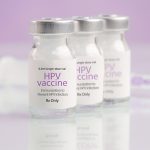-
Online Second Opinions
More than half of patients who participated in a program offering online second opinions were recommended a change to their treatment plan.
by Eric Fitzsimmons
-
March 28: The Week in Cancer News
New prostate cancer surgery approach can prevent sexual side effects, and some people with esophageal cancer may be able to avoid surgery.
by Thomas Celona
-
Musical Toxicity an Effect of Cancer Treatment
Study finding cancer treatment affects ability to play or sing music highlights need for physical therapy, experts say.
by Kyle Bagenstose
-
March 21: The Week in Cancer News
Cooling and compression help manage common side effect of chemotherapy, and deadlines encourage people to complete colorectal cancer screening.
by Marci A. Landsmann
-
Treatment Lags Behind Guidelines for Many Men With Prostate Cancer
Guidelines for treating advanced prostate cancer changed in 2017, but a recent study indicated many patients were not being treated accordingly.
by Laura Gesualdi Gilmore
-
March 14: The Week in Cancer News
Pickleball encourages more activity in cancer survivors, and urine test detects aggressive prostate cancer.
by Kevin McLaughlin
-
March 7: The Week in Cancer News
HPV vaccine credited for 80% drop in lesions that can lead to cervical cancer, and FDA approves targeted therapy for esophageal cancer.
by Thomas Celona
-
Treating HER2-ultralow Breast Cancer
FDA approval expands treatment options for people with metastatic breast cancer that expresses minimal levels of HER2.
by Sandra Gordon
Cancer Talk
Lessons From 20 Years Living With Cancer
Multiple myeloma survivor Jonathan Gluck reflects on uncertainty, and the scientific progress that has kept him living with cancer for more than two decades.
by Eric Fitzsimmons
The Enduring Importance of Cancer Disparities ResearchOpening session from AACR conference highlights how perseverance and adversity have informed cancer disparities research over the years.
by Eric Fitzsimmons
Most Cancer Survivors Don’t Meet Healthy Diet GoalsDespite research linking fruits and vegetables to cancer survival, many people do not change their eating habits after diagnosis.
by Darlene Dobkowski
Many People Don’t Get Colonoscopy After Receiving Abnormal Blood TestsAbout half of people who receive abnormal results from colorectal cancer screening tests don’t follow up with a colonoscopy.
by Laura Gesualdi Gilmore












